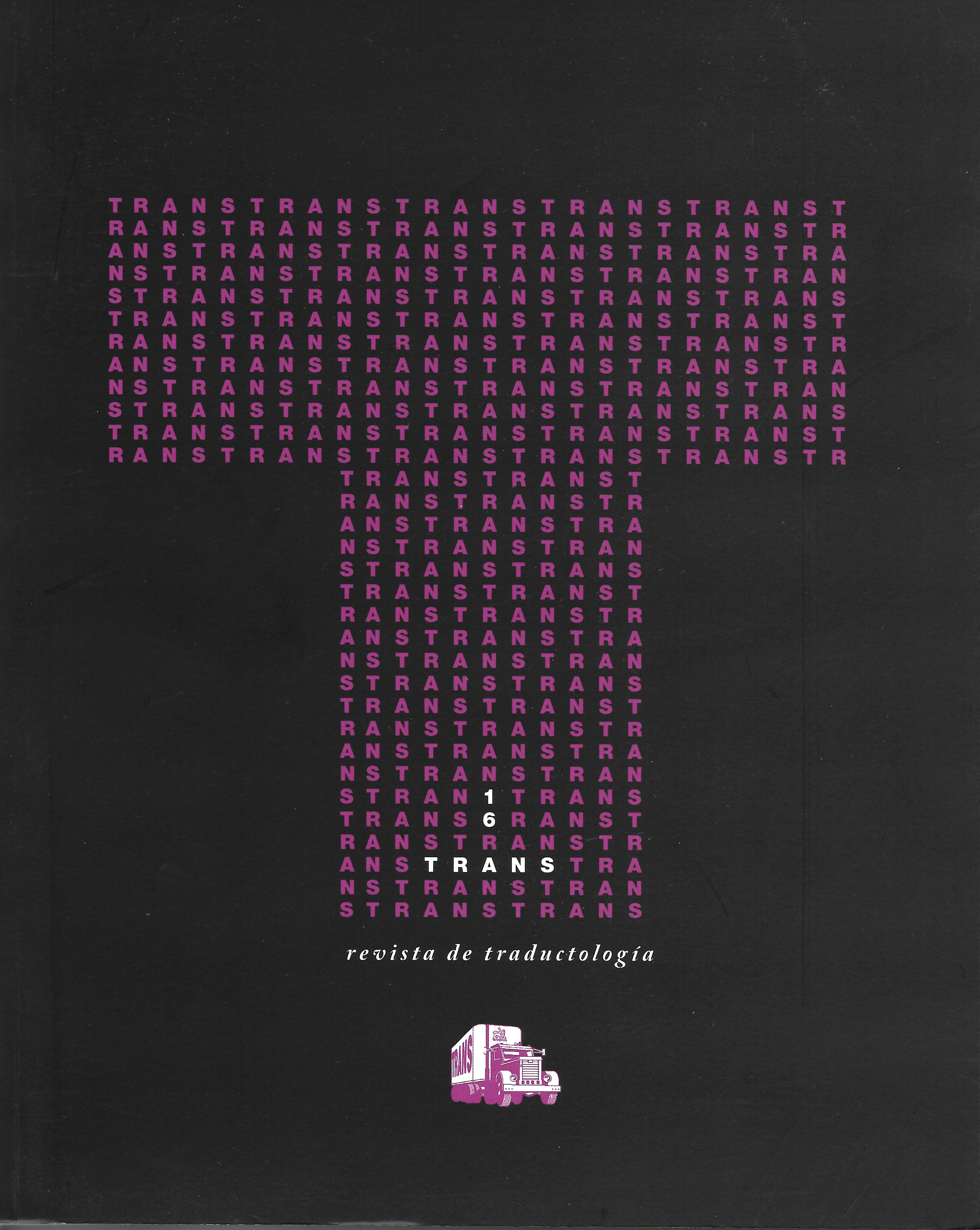Mechanisms of «depersonalization» in French jurisprudence and their translation to Spanish: textual convention or cultural convention?
DOI:
https://doi.org/10.24310/TRANS.2012.v0i16.3208Keywords:
discourse analysis, contrastive analysis, «depersonalization», jurisprudence, french-spanish translationAbstract
Linguistic mechanisms aiming to hide the subject of the action are frequent in French judgments, and their presence may be due to textual conventions rather than cultural ones. Among these mechanisms of «depersonalization», there are certain expressions formed by invariable lexical units (sur, pris, vu, etc.). These words support different arguments conveyed throughout the text and enable the transition from one enunciative voice to another one. The aim of this study is to analyse five expressions which provide a high degree of objectivity to determine, firstly, their meaning, and, secondly, to offer possible equivalents in Spanish. In order to do so, we have studied a corpus of judgments from the French Cour de cassation and from the Spanish Tribunal Supremo on the same subject and pronounced in the same period of timeDownloads
Metrics
Publication Facts
Reviewer profiles N/A
Author statements
Indexed in
-
—
- Academic society
- N/A
- Publisher
- Universidad de Málaga
Downloads
Published
How to Cite
Issue
Section
License
All contents published in TRANS. Revista de Traductología are protected under the Creative Commons Attribution-NonCommercial-ShareAlike 4.0 International (CC BY-NC-SA 4.0) license. All about this license is available in the following link: <http://creativecommons.org/licenses/by-nc-sa/4.0>
Users can copy, use, redistribute, share and exhibit publicly as long as:
- The original source and authorship of the material are cited (Journal, Publisher and URL of the work).
- It is not used for comercial purposes.
- The existence of the license and its especifications are mentioned.
- ShareAlike — If you remix, transform, or build upon the material, you must distribute your contributions under the same license as the original.
There are two sets of authors’ rights: moral and property rights. Moral rights are perpetual prerogatives, unrenounceable, not-transferable, unalienable, imprescriptible and inembargable. According to authors’ rights legislation, TRANS. Revista de Traductología recognizes and respects authors moral rights, as well as the ownership of property rights, which will be transferred to University of Malaga in open access.
The property rights are referred to the benefits that are gained by the use or the dissemination of works. TRANS. Revista de Traductología is published in an open access form and it is exclusively licenced by any means for doing or authorising distribution, dissemination, reproduction, , adaptation, translation or arrangement of works.
Authors are responsable for obtaining the necessary permission to use copyrighted images.













21.png)
